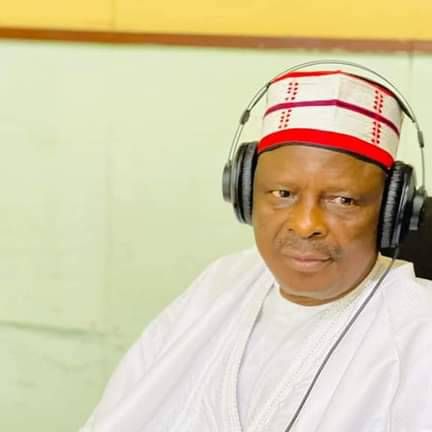Rabiu Musa Kwankwaso, the leader of the New Nigeria Peoples Party (NNPP) and former Governor of Kano State, has firmly denied claims suggesting he struck a political agreement with Atiku Abubakar of the Peoples Democratic Party (PDP) and Peter Obi of the Labour Party.
The alleged deal, which has gained traction in political circles and on social media, purportedly involves a rotational presidency arrangement between the trio: Atiku to rule for four years, followed by Kwankwaso for another four years, and Obi for eight years. Speaking during an interview with the BBC, Kwankwaso dismissed these claims as baseless and a calculated attempt to mislead Nigerians.
“A Fabricated Lie”
Kwankwaso wasted no time in discrediting the rumors. “They were told that I had agreed to a deal where Atiku would serve for four years, I would serve for another four years, and Peter Obi would serve for eight years. This is completely false; such an agreement never existed,” he stated unequivocally.
He expressed his disappointment at the spread of such misinformation, emphasizing that it was precisely such deceptive tactics that prompted him to sever ties with the PDP. “Such lies and deceit are precisely why we left. Myself, Peter Obi, Wike, and others all left,” he added, highlighting the ongoing discontent among former PDP members who have since aligned with other political platforms.
A Background of Division
Kwankwaso’s departure from the PDP was part of a broader wave of defections in the lead-up to Nigeria’s 2023 general elections. The NNPP, under his leadership, emerged as a critical force, drawing support primarily from the northern regions and offering an alternative to the traditional dominance of the PDP and APC.
Peter Obi, a former governor of Anambra State, also left the PDP to join the Labour Party, where he contested the 2023 presidential election. The fragmentation of opposition parties has been a recurring theme in Nigerian politics, with defections often fueled by accusations of marginalization, internal party disputes, and unfulfilled promises.
Political Gamesmanship
Kwankwaso alleged that Atiku’s camp has been attempting to rebuild bridges with former allies through clandestine meetings and consultations with regional leaders and religious clerics. However, he dismissed these efforts as insincere and opportunistic.
“Now they are coming back, asking us to help those who humiliated us to achieve their goals,” Kwankwaso said, without naming specific individuals. His remarks highlight the deep-seated mistrust that continues to plague Nigeria’s opposition politics.
Reactions to the Denial
Kwankwaso’s statements have sparked mixed reactions within the political landscape. While his supporters laud his forthrightness, critics accuse him of playing a similar game of political maneuvering.
“Kwankwaso is right to clear the air, but the timing is curious,” noted political analyst Yusuf Bello. “With the 2027 elections around the corner, every statement has to be scrutinized for its potential impact on alliances and voter perception.”
The Bigger Picture
The allegations of a power-sharing agreement underscore the challenges of coalition-building in Nigeria’s multi-party system. With the electorate increasingly disillusioned by unfulfilled promises and allegations of corruption, political leaders are under pressure to present a united front.
However, achieving unity has proven elusive. Atiku, Obi, and Kwankwaso, despite their common grievances with the ruling All Progressives Congress (APC), have yet to forge a cohesive opposition strategy. Analysts believe this fragmentation could once again hand the APC an advantage in future elections.
Kwankwaso’s Political Trajectory
As one of the most prominent figures in northern Nigerian politics, Kwankwaso’s influence extends beyond the NNPP. His tenure as Kano State governor is remembered for significant infrastructural development, including the creation of flyovers, hospitals, and schools.
However, his critics argue that he has yet to demonstrate the nationwide appeal necessary to secure the presidency. The 2023 elections saw him finish a distant fourth, behind Bola Ahmed Tinubu, Atiku Abubakar, and Peter Obi.
What Lies Ahead?
Kwankwaso’s denial of the alleged agreement signals his intent to chart an independent course ahead of the 2027 elections. However, the question remains whether he can rally enough support to challenge the dominance of the APC and PDP.
Political observers argue that any hope of success will require bridging the divides within the opposition. “Kwankwaso, Obi, and Atiku need to set aside their differences if they are serious about defeating the APC. The current disunity only benefits the ruling party,” said Chika Eze, a political commentator.
For now, Kwankwaso appears focused on defending his reputation and dispelling what he calls “lies and deceit.” As he prepares for the political battles ahead, his next moves will undoubtedly be watched closely by allies and adversaries alike.

